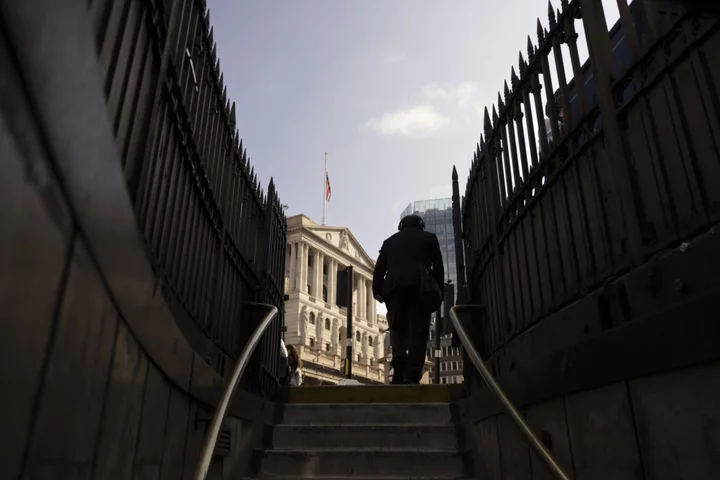The UK’s short-term government borrowing costs climbed to 5% for the first time since the global financial crisis amid concern the troubling inflation outlook could lead to more aggressive monetary tightening from policymakers.
The two-year bond yield — among the most sensitive to changes in central bank policy — advanced 6 basis points to 5% on Monday, a level last seen in 2008. The latest selloff comes ahead of crucial inflation data Wednesday and the Bank of England’s decision Thursday.
Core inflation — which strips out more volatile components — is expected to hold steady at the highest in over four decades, even as the headline number is forecast to have slowed slightly in May. That risks prompting a more hawkish response from officials struggling to curb consumer prices.
Traders are fully pricing in a quarter-point hike this week, and attribute a one-in-five chance of a bigger half-point move, according to swaps tied to BOE meeting dates. Money markets expect the policy rate to peak at 5.75% by year-end, with a one-in-two chance of a final increase to 6% by early next year.
UK government bonds are some of the worst performing among major peers this year, with two-year yields up more than 140 basis points. Higher borrowing rates are also filtering through other sectors of the economy. The average two-year fixed-rate home loan jumped above 6% for the first time this year.

